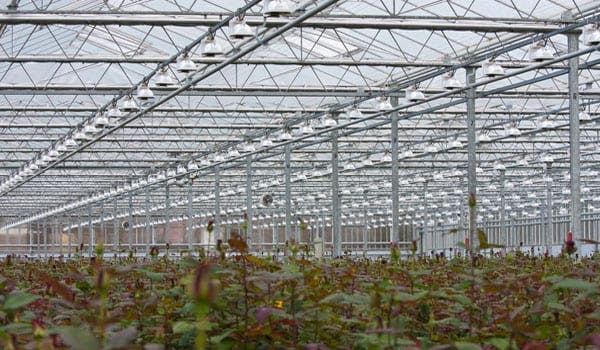As the roses given and received on Valentine’s Day now wilt, one small business owner is casting the spotlight on the sustainability of an industry.
Owner and operator of the only certified Fairtrade flowers distributor in Australia, Jen Chaput says the beauty of the flower industry has an ugly side.
Unbeknownst to many even working in the industry, the majority of flowers sold in Australia are imported from Kenya, Columbia and India. Jobs can be insecure, and worker conditions often range from poor to intolerable.
According to Fairtrade International, the majority of workers on flower farms are women with poor or no education – there are instances of pesticides being spayed on flower crops whilst workers, some pregnant with no protective clothing, are in the fields.
Having previously run a bridal flowers business in the US, Chaput says that reading the book Flower Confidential by Amy Stewart opened her eyes to the realities of an unchecked supply chain.
“I started to look for more books or videos on the subject and started learning about Fairtrade Certification and other flower labels. It’s a subject that not many people talk about and in my experience, most flower shop employees are completely ignorant about as well. It’s the ugly side of flowers. Making flowers beautiful again inspired me to start importing Fairtrade Certified roses in the USA and when we relocated to Australia, to start Instant Karma Roses,” Chaput says.
Run part-time out of Melbourne, Chaput and her husband Ric Webster distribute Fairtrade flowers during the Valentine’s Day and Mother’s Day periods, as well as for Fairtrade fortnight.
Because it is cheaper for major distributors to import roses rather than grow locally, the supply chain can become convoluted to even the most discerning.
Dennis Secco is a man who knows roses. As the co-owner and Director of Flora International since 1999, Secco says that from transportation and energy costs to labour challenges and pesticide usage, it’s no longer tenable to run his business as majority Australian-grown. Currently, approximately 30 per cent of his roses are sourced from Australian growers.
“We used to be really big rose growers here in New South Wales, but over the years we’ve been forced to diminish the amount of roses that we’re planting, and the main reason for that is the cost of our labour has become very expensive,” he says.
“In this way we’re no different to Holden or Toyota or Bonds underwear in pulling out of the country, and I think a lot of the growers are in the same position of having to import more and more products as a result of these issues,” Secco adds.
As a result, Flora International deals with trade partners primarily in Kenya. Although his business does not distribute certified Fairtrade flowers, he says one of his partners carries the certification. Beyond this, Secco says he regularly visits the farms he deals with abroad and is satisfied with worker conditions.
“I’ve certainly seen a number of farms which I wouldn’t deal with, from their toilet facilities to bad roads on-site, and it’s a bit scary really,” he adds.
Locally, Chaput believes trade conditions are tough for florists. Yet at the same time, public awareness around the flower supply chain is limited by the lack of mandatory labeling requirements. Because of limited labeling, consumers and resellers alike cannot be guaranteed of the product origin and farm conditions, unless they buy direct from local markets and farmers, which Chaput supports.
“If you can’t buy local, it’s safer to buy Fairtrade, where there’s a label on the stem or the bouquet that guarantees they’ve come from a Fairtrade certified farm, that the money is going back into the community, and a fair price has been paid for the labour. There are also environmental requirements as part of the certification to ensure that the farm is sustainable long term,” she says.
“A lot of people ask us why Australia needs Fairtrade certified flowers. [But] the reduced cost of imports is not only impacting the lives of the flower farm workers in developing countries, but its also economically impacting the Australian farmer who can no longer compete,” she adds.
The main frustration Chaput has in considering the current state of the Australian Flower Industry is operators who say they have ‘fairly traded flowers’.
“I’ve come up against importers who say ‘Well I buy them from a Fairtrade certified farm and therefore they’re fairly traded’. But they’re not paying the Fairtrade price, which is ten per cent above the commercial price. If they don’t pay the Fairtrade price, they’re not actually supporting the workers, because the Fairtrade premium is what goes back to the community development. This is the most important part – to ensure that the community benefits from the purchase.
Fairtrade also hosts the documentation that allows distributors to see what would be considered a living wage for the area in which flower farms are located.
The certification body tracks every step of the supply chain and Chaput says it’s a requirement to list which farms they’re buying from. “Those farms are audited as well and if there are any issues on their end we’re notified, and we may not be able to continue trading with them. But if you’re not registered with Fairtrade Australia, then you really have no idea what kind of human rights issues might be occurring on that farm.”

